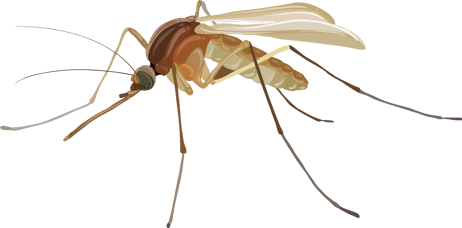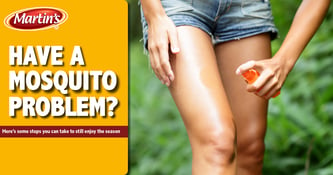A Closer Look with Heather Patterson
The mosquito is our ultimate (and most irritating) adversary. They can attack at any angle, are near silent as they strike, and often leave behind itchy welts after bloodmeals. Many of them carry disease-causing pathogens which are passed along to their victims as they feed. To add insult to injury, they have special adaptations that have been developed over generations to assist in their blood-sucking endeavors.
Only female mosquitoes feed on blood. Female mosquito mouthparts are highly adapted to blood feeding. They resemble a flexible needle and pierce into the skin to reach blood in capillaries below the skin surface. Their sharp, needle-like stylets are housed in a sheath when not in use to protect them from damage. Male mosquitoes are nectar feeders only; they don’t bite people or feed on blood at all.
Female mosquitoes use the blood meal they obtain for egg production. While both male and female mosquitoes feed on nectar, the female requires the proteins from blood to produce eggs. Essentially, when you are bitten by a mosquito you are helping to grow the next generation!

When a female mosquito feeds, she also injects saliva into the skin. This saliva acts as an anesthetic. If the host doesn’t know they are being bitten, this improving the mosquito's chances of escaping unscathed.
Mosquito saliva also is an anticoagulant, preventing blood from clogging the mosquitoes’ syringe-like mouthparts. In addition to acting as an anticoagulant, mosquito saliva can slow down the process in which our blood vessels narrow. This allows mosquitos to feed longer and enjoy complete blood meals.
The raised welt and itchy sensation after a mosquito bite is a mild allergic reaction to the saliva that has been injected into your skin.
Subscribe to our website and follow us on Facebook & Twitter for promotions, product launches, product info and much more!
